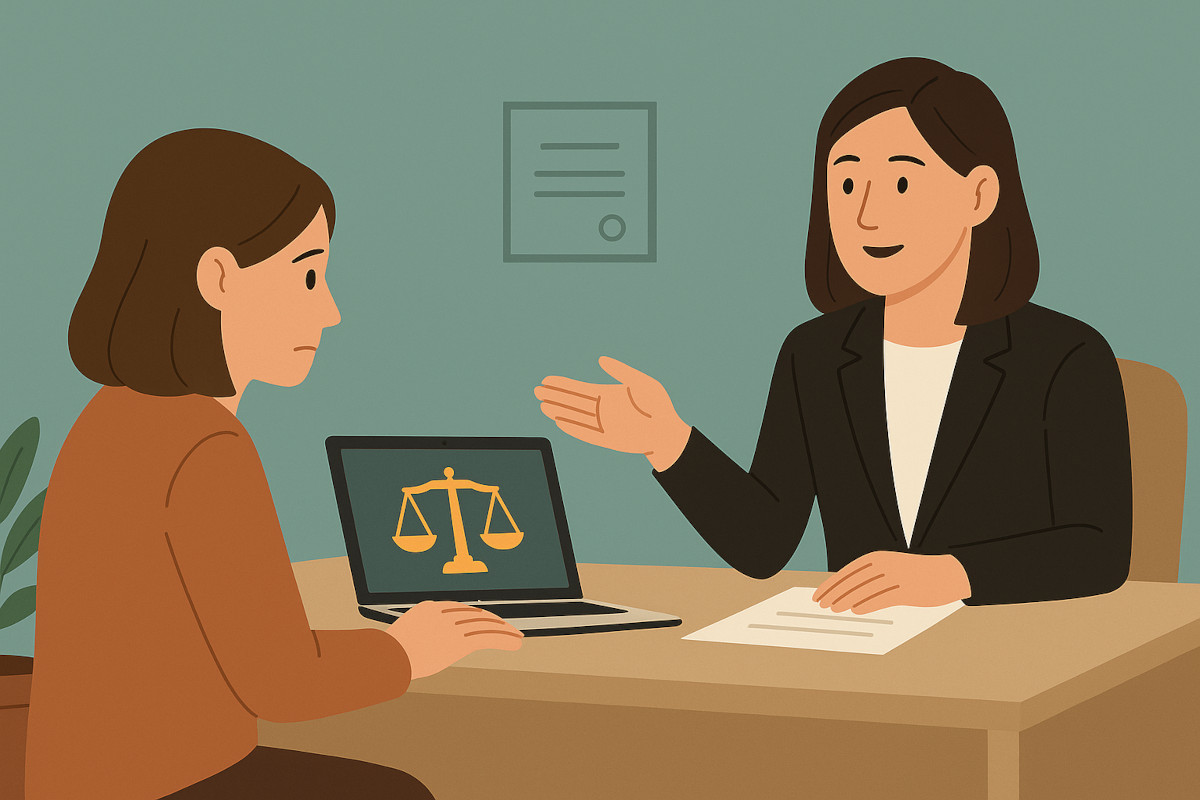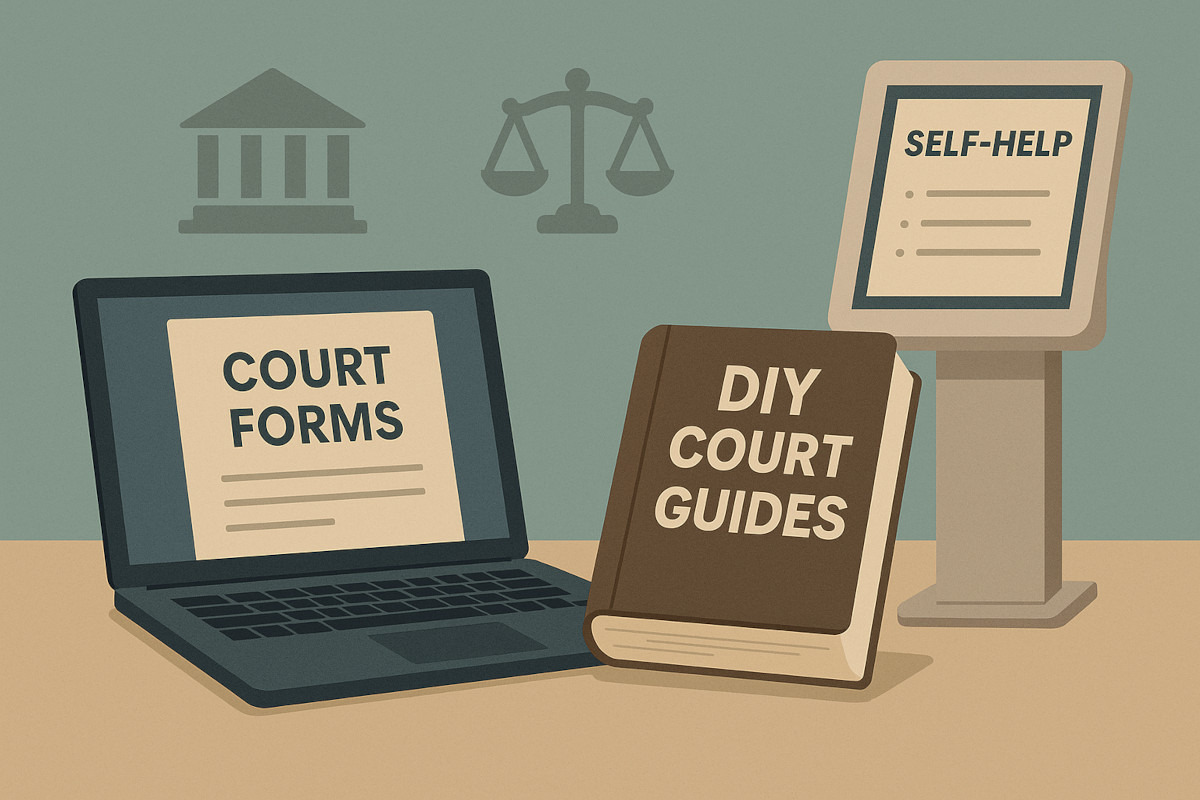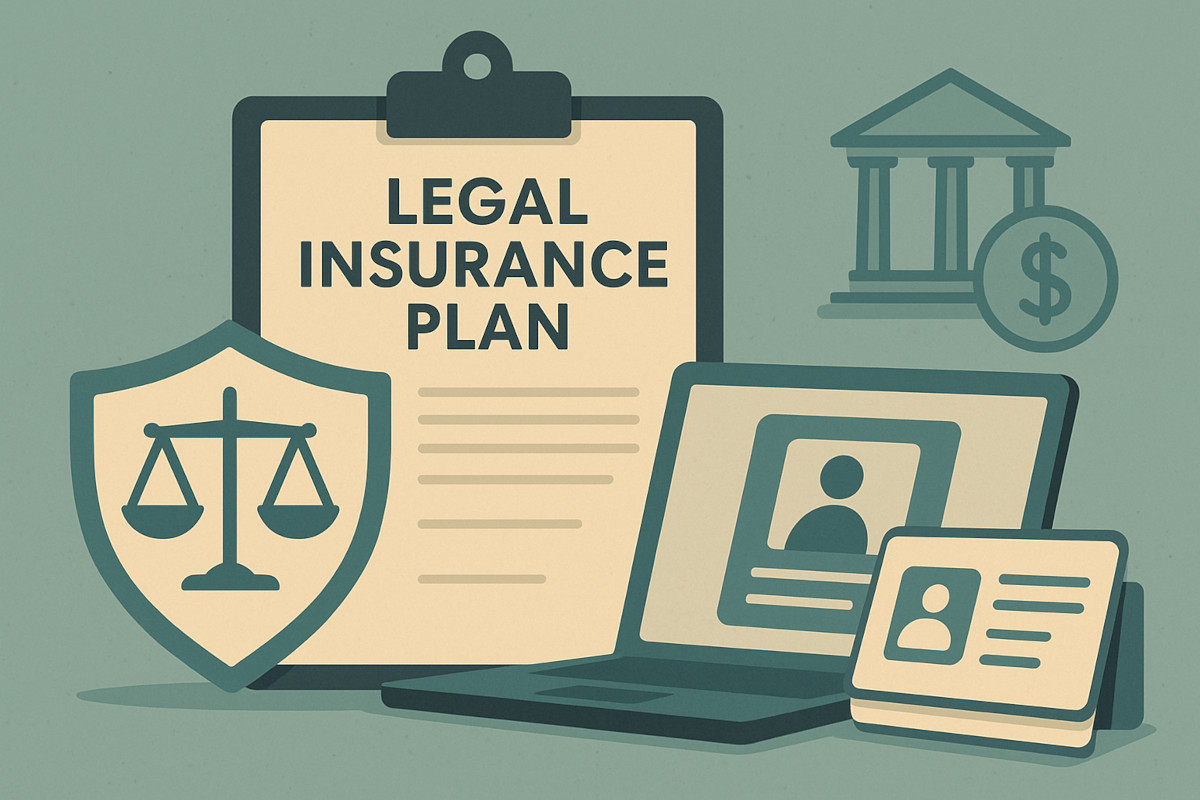I Need a Divorce Lawyer and Have No Money – What Are My Options?
Note: The information provided in this blog post is for general informational purposes only and does not constitute legal advice. No attorney-client relationship is formed by reading this post. Laws vary by jurisdiction, and the application of law depends on individual circumstances. For specific guidance on your personal legal issues, you should seek advice from a licensed attorney in your jurisdiction. Neither the author nor the publisher assumes liability for actions taken in reliance upon the information contained in this post.
Facing divorce can feel overwhelming, especially when you’re struggling financially. If you’re thinking I need a divorce lawyer and have no money, know that practical options are available.
This guide explores free and low-cost legal services to help you navigate divorce without draining much savings. Even with limited funds, you have pathways to protect your rights and secure the support you need.
Where to Find Free or Low-Cost Legal Help?
Many organizations provide free or affordable legal services for those who need a divorce but lack funds. So, if you need a divorce lawyer and need money desperately, start with these resources:
Legal Aid Organizations
Legal aid organizations are nonprofits that provide legal help to low-income individuals. They exist in every state and are funded by groups like the Legal Services Corporation (LSC). Generally, to qualify, you must have a limited income (often below a certain percentage of the poverty line).

Some legal aid offices have flexible income rules or make exceptions for special situations. For example, victims of domestic violence or people facing other emergencies might still get help even if their income is slightly above the usual cutoff.
How to Apply for Legal Aid:
- Begin with nationwide resources like the Legal Services Corporation (LSC) or LawHelp.org. These websites offer directories that can help you find legal aid organizations in your state.
- Prepare documentation such as pay stubs, tax returns, and any proof of government benefits to demonstrate your financial need.
- Most legal aid offices require you to fill out an intake form. This form will ask for details about your income, expenses, and the specific nature of your legal issue.
- Many legal aid offices have waiting lists. Follow up regularly to check on your application status.
Keep in mind that the demand is high, so there might be a waitlist or limited scope of services.
Local Bar Associations
If you don’t qualify for traditional legal aid, your county or state bar association may help connect you with affordable lawyers. Bar associations often have lawyer referral services and maintain panels of attorneys who offer initial consultations at a low cost. For instance, a bar referral might set up a 30-minute meeting with a family lawyer for a small fee (sometimes $50 or less).
Helpful Tips:
- The American Bar Association’s (ABA) “Find Legal Help” portal is a reliable starting point. It can direct you to state and local bar associations.
- Contact your local bar association directly — some might offer dedicated pro bono programs.
- Ask how they match low-income individuals with volunteer attorneys. For instance, some associations have specific days or clinics where attorneys volunteer their time for family law matters.
These services may not always be completely free, but they can connect you with attorneys who offer limited-scope representation. This option helps with divorce costs, as you’d only have to pay for specific tasks.
Self-Help Tools and Court Resources
Many state courts have self-help centers or online portals for people representing themselves (often called pro se litigants). These centers provide free guides, instructional materials, and sometimes even staff or volunteers to answer basic questions.

These often supply the required court forms for divorce and can assist with form completion. Check your state or county court’s website for a “self-help” section.
Law Libraries and Guides
Public law libraries (sometimes at the courthouse) have books and reference materials on divorce law. Librarians can often point you to do-it-yourself divorce manuals or form packets. While not legal advice, these guides explain the steps for an uncontested divorce, paperwork filing, and court procedures in plain language.
Websites like LawHelp Interactive allow users to prepare legal documents for free by answering simple questions — they can help you fill out forms for an uncontested divorce at no cost.
ABA Free Legal Answers
This is a nationwide online clinic where volunteer lawyers answer questions for free. You can post a question about your divorce situation on the ABA Free Legal Answers portal and get advice from a family law attorney.
While this won’t provide full representation, it’s a convenient way to get guidance on your local jurisdiction.
What If You Don’t Qualify for Free Legal Help?
Beyond completely free options, there are low-cost divorce services you can explore:
Fee Waivers for Court Costs
Divorce involves some required court fees (for filing the petition, serving papers, etc.). If you cannot afford these fees, courts often allow you to apply for a fee waiver (sometimes called proceeding in forma pauperis).
A fee waiver request is a form where you provide information about your income, expenses, and assets to show the court you can’t pay.
Each jurisdiction has its own rules, but common eligibility factors include receiving public benefits (like welfare, food stamps, or SSI) or having income below a certain level such that paying the fee would make you unable to support your basic needs.
To get a fee waiver, ask the court clerk for the fee waiver form when you file for divorce. You usually need to submit documentation of your income (pay stubs, benefit award letters, etc.) along with the request. A judge will review it and decide whether to grant it.
Law School Clinics
Universities with law schools often run legal clinics where law students (supervised by licensed attorneys) provide services to the public. Family law/divorce is a common topic at these clinics. These services are usually free or very cheap since the goal is to train students and serve the community.
A law school clinic might take on your divorce case if it fits their program criteria (for example, uncontested divorces or cases involving child welfare). This can be an option for a cheap divorce for low-income individuals, as you get representation at little to no cost.
Nonprofit Family Law Centers
In some areas, nonprofits offer family law centers that help with divorces on a sliding fee basis. They may charge a small administrative fee or reduced hourly rates well below market rate. These are often geared toward clients who don’t qualify for free legal aid but also cannot afford a private attorney — a “modest means” clientele. While region-specific, it’s worth searching for family justice centers or legal clinics in your area.
Unbundled Legal Services
Some private attorneys offer limited-scope or unbundled services. The American Bar Association notes[4] that in limited-scope representation, a lawyer and client agree the lawyer will handle only specific parts of the case while the client takes on the rest.
For example, you might handle the paperwork and negotiations yourself but pay a lawyer to review your settlement agreement, coach you before a court hearing, or attend one critical hearing on your behalf.
If you cannot afford full representation, consider hiring a lawyer for a few critical steps and doing the simpler tasks yourself. This hybrid approach can significantly cut costs.
Mediation Services
While not exactly legal representation, mediation is a low-cost way to reach a divorce agreement with the help of a neutral third party. Many states require mediation for custody or support disputes, and courts might provide a mediator for free or a nominal fee.
Even if not free, mediation tends to be cheaper than a litigated divorce because both spouses might split the cost of one mediator instead of each paying lawyers.
Community mediation centers or nonprofit dispute resolution organizations sometimes offer free or low-cost divorce mediation sessions. If successful, mediation produces a settlement that an attorney can then draft into a divorce decree (often at a much lower cost than fighting in court).
This process can be the cheapest way to get a divorce when both parties are willing to negotiate, as it avoids lengthy court battles and high attorney bills.
Alternative Solutions When You Can’t Afford a Lawyer
Aside from traditional legal help, there are other ways to manage or fund a divorce when money is tight. Here are some alternatives you should keep in mind:
Legal Insurance Plans
If you have access to legal insurance or a prepaid legal services plan (sometimes offered through employers or unions), it could cover some divorce expenses. Legal insurance works similarly to health insurance — you pay a small premium, and, in return, the plan pays for attorneys or services from a network for certain legal matters.

Some plans fully cover an uncontested divorce or provide significant discounts on legal fees. It’s worth checking if such a plan is available through your employer or local union.
Reduced-Fee Attorneys (Modest Means Panels)
As mentioned under bar associations, if you have some income but not enough for market rates, look for “modest means” attorney panels. These are lawyers who agree to take clients at a reduced hourly rate. It’s not free, but for example, they might charge $75/hour instead of $300/hour. This can make a huge difference in affordability. You still need to budget and perhaps use one of the funding options above to pay the reduced fees, but it stretches your dollar much further.
Crowdfunding or Community Support
In the era of online fundraising, some individuals turn to platforms like GoFundMe to raise money for legal fees. While it might feel difficult to ask, you may find friends, family, or community members willing to chip in.
Here’s a brief, step-by-step guide on how to set up a campaign:
- Sign up on the platform and click “Start a Campaign”
- Choose a clear, descriptive title (e.g., “Help Me Cover Legal Fees for My Divorce”)
- Write about your situation honestly and concisely. Explain why you need funds, what specific legal fees they will cover
- Set a realistic funding goal
- Share your campaign link on social media, with family and friends, and within local community groups
If friends or family are willing to pitch in through crowdfunding, it’s a smart idea to have a dedicated account in your name only. Even if your balance is zero at the moment, any funds you receive will remain separate and secure. Having a separate account can help you maintain financial independence during a divorce, which is just one reason why couples should have separate accounts.
Frequently Asked Questions
Still got questions on how to afford a divorce? Read on below for some common queries.
How Can I Get Financial Assistance for My Divorce?
Financial support can come from various sources. Legal aid programs and nonprofits may offer free or reduced-cost legal help. Crowdfunding and community grants are viable, too. Moreover, consider options for funding legal fees — such as low-interest loans from reputable lenders — to cover expenses without too much financial burden.
Do Divorce Lawyers Offer Payment Plans or Financing?
Yes, many divorce lawyers offer flexible payment arrangements. Options include monthly installment plans, limited-scope representation, or tailored financing solutions.
Some attorneys may also assist in exploring options for funding legal fees, such as conventional loans.
How Can I Divorce My Spouse Without Losing Everything?
Protecting your assets requires a clear understanding of your rights. Seek a free legal consultation to learn about equitable property division and spousal support. Consider mediation or collaborative divorce to negotiate a fair settlement, and consult a financial planner for budgeting advice.
If There's Income Disparity, Should My Spouse Pay for Fees?
Yes, in many jurisdictions, if one spouse has a much higher income than the other, the court may require the higher-earning spouse to help cover or pay the legal fees of the lower-income spouse. This is often done through fee-shifting or attorney fee awards designed to level the playing field in divorce proceedings.
However, the application of these measures varies by state law and the specific circumstances of your case. For the best guidance, it’s recommended that you consult a legal aid specialist or family lawyer who can advise you based on your local jurisdiction and unique situation.
How Can I Earn Extra Income While I Await the Trial?
If you’re looking for ways to earn money from home to help fund the divorce, it may help to consider creative online income ideas. While those ideas focus on tips for women, most of the strategies can be adapted by anyone looking for flexible work options.





